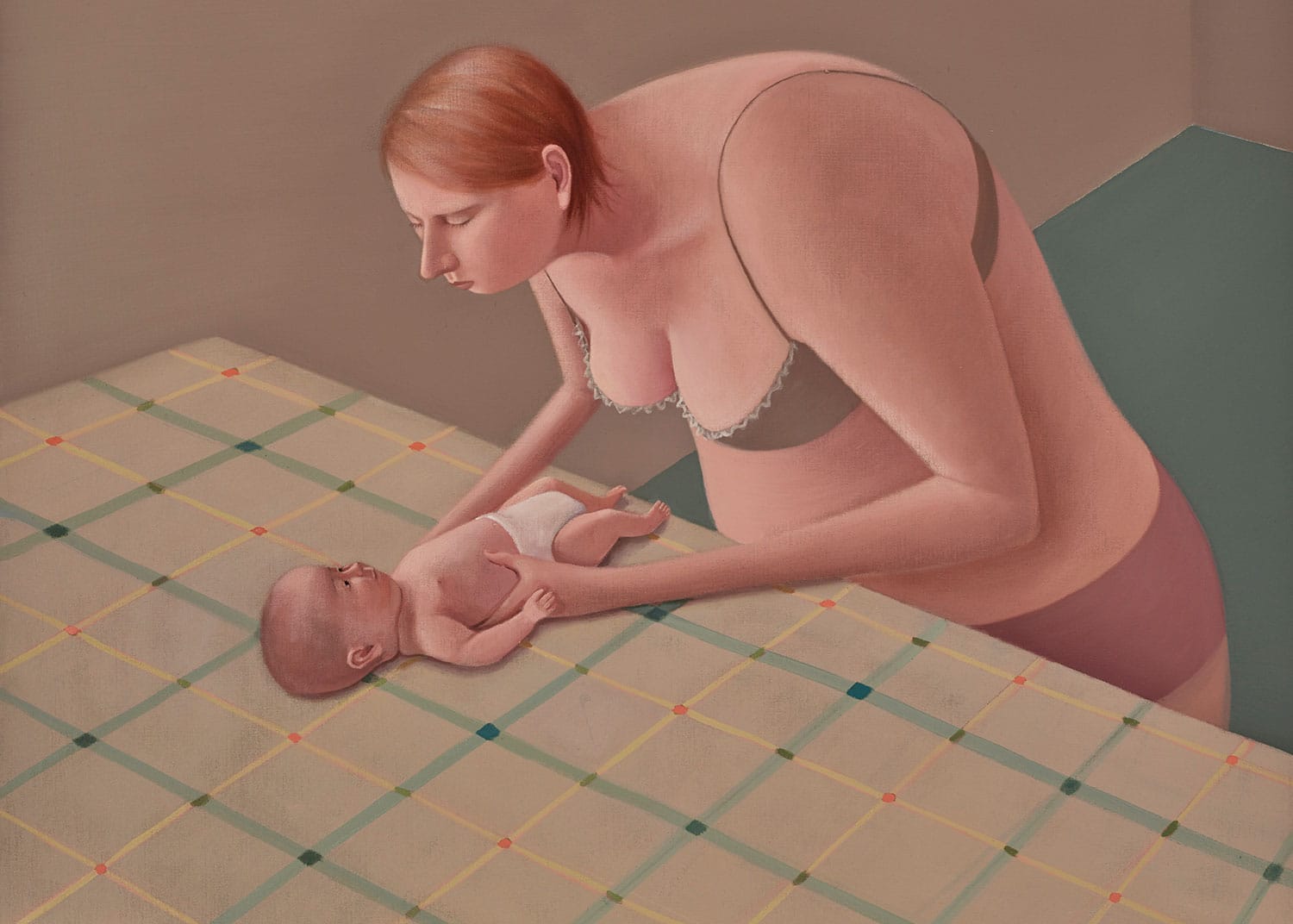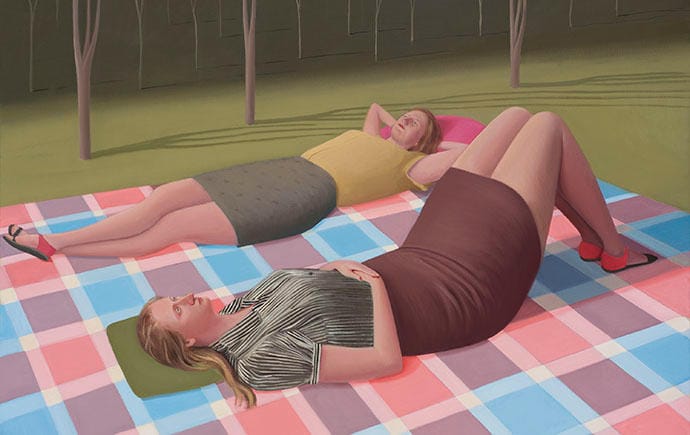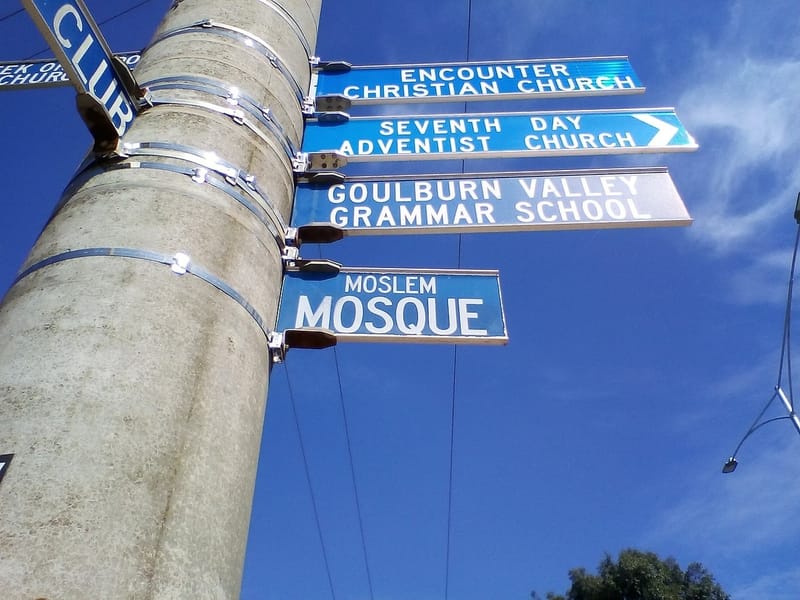
Prudence Flint’s working method might be slow and cautious, but responses to her work are usually vivid and spontaneous. She produces a handful of paintings each year, working on several simultaneously, so the work is deeply considered.
Flint never paints with a prize in her sights. “It is hard enough to paint an idea with some conscious intention without making it one-dimensional, so I let myself paint what I need to paint,” she says.
“If I set myself to do ‘an Archibald painting’ I know I would do a total dud. It would be too oppressive and it wouldn’t excite me.”
Instead, she takes it open-endedly; sometimes the work nosedives, but she allows time for resolution. “That seems to work for me.”
When Flint began her Masters in Visual Arts (Research) in 2003, she had the straightforward ambition of investigating figurative painting. She did that diligently and with pleasure; the unexpected thing was her career then flew higher.
I got to explore many great contemporary figurative painters and it was very liberating for me. It made me braver.
During that time she won the $100,000 Doug Moran Prize (2004). She began to have regular solo shows and more lucrative prizes followed, such as the Portia Geach Memorial Award (2010) and the Len Fox Painting Award (2016).
“I am a person who likes to work in an isolated situation, so it forced me to get out among other people, justify my work and put it in an international context,” Flint says. “I got to explore many great contemporary figurative painters and it was very liberating for me. It made me braver.”
One big thing she felt about her time at Monash was how supportive her teachers were. She felt “totally looked after” during four years researching written and exhibition components. “The staff could see what I was trying to do. I was lucky: it’s all to do with teachers’ biases, and their biases were mine.”

She says the study consolidated the path she was on, which began with bachelors degrees in fine arts (Victorian College of the Arts, 1989) and graphic communication (Chisholm Institute of Technology, 1984).
Flint says Sir John Monash’s advice to “equip yourself for life, not solely for your own benefit but for the benefit of the whole community” rings true at a deep level. “I feel that trusting your own impulse to create is looking after the community. In a way, you are trusting life itself with the urge to create something. I trust that I’m trying to create something profound.”





